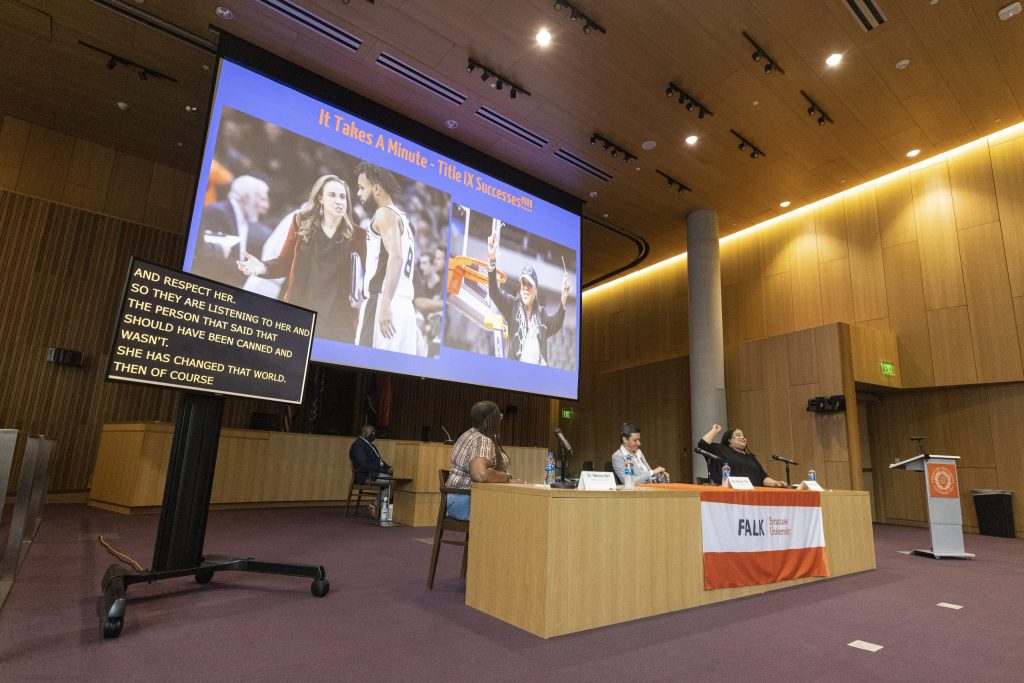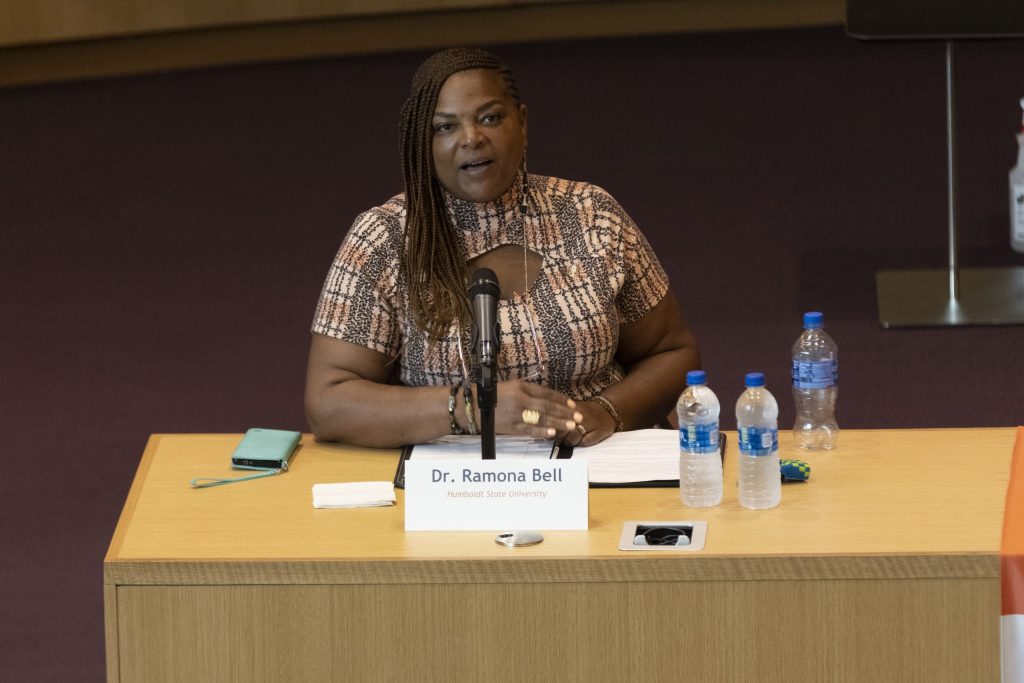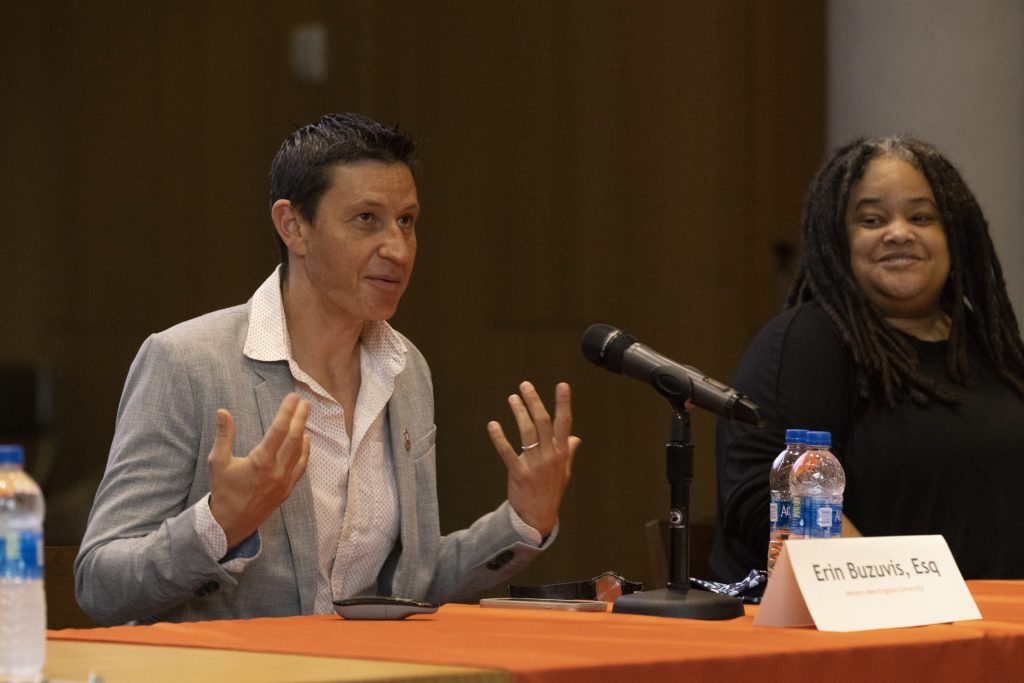Symposium on Title IX examines legislation’s effect
Title IX symposium examines effect of the legislation

In anticipation of the 50th anniversary of Title IX being passed into law, the David B. Falk College of Sport and Human Dynamics, SU Athletics, and the Department of Sport Management hosted the first of a series of speaking engagements discussing Title IX and its influence on women’s sports on Saturday, October 9.
The first speaking event, “Title IX and Women’s Athletics: Looking Back and Looking Forward” gave attendees an opportunity to learn more about the history of Title IX, which is arguably one of the most compelling pieces of legislation in American history.
“Title IX was included in an omnibus education spending law that was passed in 1972,” said Erin Buzuvis, a professor of law and Associate Dean of Academic Affairs at Western New England University. “Why is that relevant? Title IX was really an add-on piece to a piece of legislation that was doing a lot of other things.”
At the time when Title IX was introduced into legislation, it wasn’t viewed as controversial. In reality, it wasn’t even a major headline. Though seen as a law promoting equal opportunity for women in athletics, neither sports nor athletics were mentioned in the original act. According to Buzuvis, it quickly became clear that sex discrimination needed to be addressed within athletics in 1974. For the NCAA, this proved to be a literal game-changer in how equality was addressed in collegiate athletics.
“..Shirley Chisolm said, ‘If they won’t give you a seat at the table, pull up a folding chair,’” said Dr. Tracey Salisbury, an Associate Professor of Interdisciplinary Studies at California State University at Bakersfield. “Don’t get comfortable. Sometimes we’re so ecstatic and exhausted from getting to the table that we don’t always ask what’s being served.”
A key talking point that surfaced throughout the panel was the idea that we as a society have become complacent in what we have accomplished with Title IX, but it’s not enough.
“When I enter this space, I bring my whole race with me,” said Dr. Ramona Bell, an Associate Professor in Critical Race, Gender, and Sexuality Studies at Humboldt State University. “What does it mean when we say we enter with them? Basically saying that I have every right to enter this space and I will enter this space on my own terms.”
In looking towards the future, the entirety of the panel was in agreement: Title IX is one of the most influential pieces of legislation created for women since the passage of a woman’s right to vote. And the fight isn’t over.

Dr. Ramona Bell speaks during the Title IX panel.

Erin Buzuvis (left) speaks during the Title IX panel as Dr. Tracey Salisbury looks on.
“You can sit at the table and smell this beautiful chicken noodle soup,” according to Salisbury. “You can see the rich noodles, and you can see the carrots and you can see the big juicy pieces of chicken, and then they start dishing it up. And then, by the time it gets to that one woman at the end of the table, you might get a few noodles, there may be a carrot or two rolling around in there, but there’s no chicken in the soup.”
To Salisbury, women are now discovering that there is more than just broth and noodles, and that everyone deserves the same service at the dinner table. Without the chicken, women are not getting the full privileges as their male counterparts.
“That is the importance of representation of what sports mean to women,” said Salisbury. “We have some success stories to really celebrate. But we need to understand how it’ll take to get there too.”





